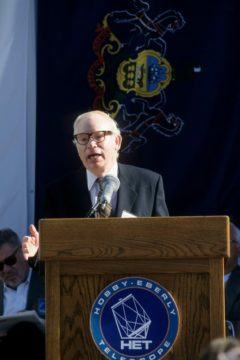Dan Falk in Scientific American:
 Steven Weinberg, who died last week at the age of 88, was not only a Nobel laureate physicist but also one of the most eloquent science writers of the last half century. His most famous (or perhaps infamous) statement can be found on the second-to-last page of his first popular book, The First Three Minutes, published in 1977. Having told the story of how our universe came into being with the big bang some 13.8 billion years ago, and how it may end untold billions of years in the future, he concludes that whatever the universe is about, it sure as heck isn’t about us. “The more the universe seems comprehensible,” he wrote, “the more it also seems pointless.”
Steven Weinberg, who died last week at the age of 88, was not only a Nobel laureate physicist but also one of the most eloquent science writers of the last half century. His most famous (or perhaps infamous) statement can be found on the second-to-last page of his first popular book, The First Three Minutes, published in 1977. Having told the story of how our universe came into being with the big bang some 13.8 billion years ago, and how it may end untold billions of years in the future, he concludes that whatever the universe is about, it sure as heck isn’t about us. “The more the universe seems comprehensible,” he wrote, “the more it also seems pointless.”
For thousands of years, people had assumed just the opposite. Our ancestors gazed at the world around us—the people and animals, the mountains and seas, the sun, moon and stars—and saw the divine. As the 19th Psalm puts it: “The heavens declare the glory of God, and the firmament shows his handiwork.” Even Isaac Newton saw a universe filled with purpose. In his masterwork, the Principia, he wrote: “This most beautiful system of the sun, planets, and comets, could only proceed from the counsel and dominion of an intelligent and powerful being.”
Science advanced by leaps and bounds in the centuries following Newton, and scientists dialed back much of the God-talk. Many thinkers suggested that the universe runs like a mighty clockwork. Perhaps a creator was needed at the very beginning, to set it going, but surely it now runs on its own. Einstein, who often spoke of God metaphorically, took a different tack. He rejected a personal deity, but saw a kind of pantheism—roughly, the identification of God with nature—as plausible.
More here.
